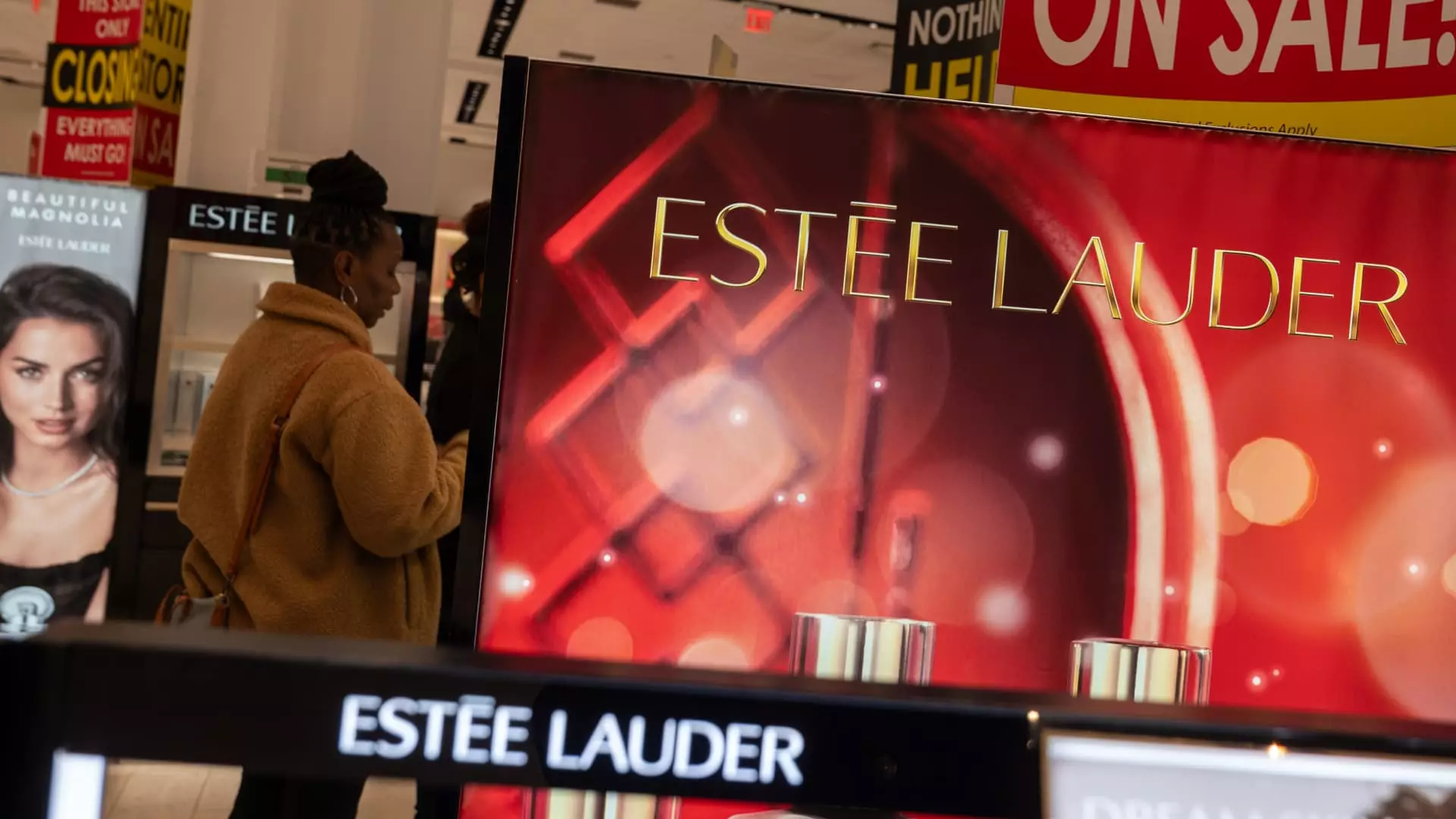This past week has been particularly turbulent for several notable beauty brands, leading to significant declines in their stock prices. E.l.f. Beauty and Estee Lauder, two key players in the industry, experienced downturns that set alarm bells ringing among investors. E.l.f. Beauty saw its worst week since August 2018, with shares plummeting nearly 29%. Despite posting revenues that exceeded expectations for its fiscal third quarter, the company missed on adjusted earnings per share and reduced its revenue forecast for the year, further unsettling stakeholders.
E.l.f’s disappointing adjusted earnings per share came as a surprise to many, especially after the company’s revenue beat expectations. However, the slashed guidance—from anticipated sales of $1.32 billion to approximately $1.3 billion—was a substantial red flag. Tarang Amin, the CEO, noted in an interview that the broader cosmetics sector had seen a 5% decline in January attributed to residual holiday discount effects and dwindling online engagement with beauty products. Analysts from prominent financial institutions, including Morgan Stanley and UBS, reacted promptly by downgrading their stock ratings, showcasing the ripple effect of a weakened outlook in an already challenging market.
Notably, Estee Lauder also bore the brunt of market volatility, with shares dropping over 22% in a single week—the worst performance since November. Although the company reported a revenue and earnings beat for the second quarter, it announced plans to reduce its workforce significantly, cutting between 5,800 and 7,000 positions by the end of fiscal 2026. The CEO, Stéphane de La Faverie, who had just assumed this position at the start of the year, lamented the company’s failure to capitalize on growth opportunities, indicating a pressing need for strategic reevaluation amidst shifting market dynamics.
Other Market Players Feeling the Pressure
The turbulence wasn’t limited to just E.l.f. and Estee Lauder. Other beauty stocks faced substantial pressure as well, with Ulta Beauty experiencing its worst week since April, down by approximately 9%, and Coty falling nearly 8%. E.l.f. Beauty highlighted a noticeable softness in demand at Ulta during January, raising concerns about consumer interest in their brands. This decline might be just a part of a larger trend affecting the beauty industry, which faces not only competitive pressures but also external factors impacting profitability.
In addition to these internal challenges, the beauty sector is also grappling with potential tariff impacts as the Chinese government announced tariffs on select U.S. imports in response to U.S. trade policies. E.l.f. Beauty, which manufactures about 80% of its products in China, expressed relief that the tariffs were limited to 10%. Still, the specter of increased costs looms large, potentially threatening profit margins further down the line.
The week’s events paint a concerning picture for the beauty industry, underscoring the volatility and challenges currently at play. Companies like E.l.f. and Estee Lauder are not only facing disappointing earnings releases but also must navigate a complex landscape filled with economic pressures and shifting consumer behaviors. As the market continues to react, it remains to be seen how these companies will adapt to regain momentum and investor confidence. The ongoing developments necessitate close monitoring for any signs of recovery or further decline.

